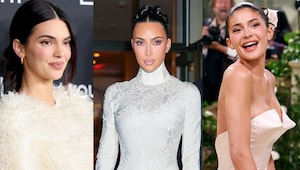How to Identify Covid-19 Hair Loss and Treat It
Hair loss caused by coronavirus needs to be treated differently than regular hair fall but identifying it can be tricky

You have just recovered from Covid-19 and have been losing a lot of hair? You aren’t alone. There are many people across the globe who have faced severe hair loss after being infected with coronavirus. According to a survey conducted by Dr Natalie Lambert from Indiana University School of Medicine and Survivor Corp Facebook group survey, it was found that hair loss was amongst the top 25 symptoms experienced by those diagnosed with the highly infectious disease.
However, how do you identify that Covid may have triggered the hair fall or it may be due to monsoon and the consequential humidity or due to some nutritional deficiency?
Dr Deepali Bhardwaj, Delhi-based cosmetologist, dermatologist, hair transplant surgeon and the founder of Skin and Hair Clinic, says, “ When you find fuzzy balls of hair stuck to your comb or scrunchies and if it looks more than 100 hairs a day, then it’s due to Covid. You would also find tangled or knotted hair on the scalp.”

Why does Covid cause hair fall?
Covid can cause hair fall due to stress. Stress has a huge role in releasing certain hormones which lead to hair fall, explains Dr Deepali. Also “hair fall, hair thinning, frizzy or damaged hairs caused when the follicle inside coils up or gets damaged or shrinks in size,” she adds.
Hair follicles inside the scalp go through different stages—the growing stage, resting stage and reproduction stage. Due to Covid and stress a lot of hair follicles go into the dormant stage, which leads to hair loss or thinning. So globally, people are seeing a huge increase in hair fall, frizzy and damaged hair.
How can the hair fall be arrested?
“The malabsorption of tryptophan and amino acids which is found in proteins has been commonly noted by scientists globally as a cause for hair loss. So tryptophan supplement helps a lot in stopping hair fall, those recovering from Covid must take it,” advises Dr Deepali.
Secondly, having a high protein diet helps because we need protein to make antibodies. Dr Deepali recommends a protein rich diet which should include soya, mushroom, lentils, green vegetables, chicken, eggs and seafood.

Besides diet, there are few simple things you can do. “Use a broad tooth comb, wash your hair with a bucket full of water and not the shower, because the pressure of the water from the shower can cause hair fall. Do not forget to massage your scalp with oil as it increases blood flow and triggers hair growth. Wrap your head with a hot towel after a massage to let the oil seep in,” says Dr Deepali.
Applying onion juice, castor oil and crushed mustard seed powder on the scalp is also an effective way to arrest hair fall. Avoid buying shampoos laden with chemicals, avoid blow dry, colouring or straightening as these can weaken the hair follicles further.
What are the other common hair issues triggered by Covid-19?

Hair turning frizzy is a common occurrence and this happens due to stress, the infection or the medicines that you take to recover from the infectious disease, explains Dr Deepali. Split ends are also common in those people recovering from Covid. So watch out for these woes and fix the issues.
more from Beauty

The most flattering blush placement for every face shape

Same trousers, same top cut—how the repeat silhouette is turning outfits into personal uniforms

These cosy cardigans will help you tap into the "granny chic" trend

'Heated Rivalry' season 2 is coming—and here’s what the books promise

BTS is back on tour—but seems like India missed a stop

How snack tourism is turning sightseeing into bite-sized adventures

From sleepwear to swim wear, India’s experiencing a rise in homegrown brands

The truth behind the viral 'Kylie Jenner-Chalamet' name card at Golden Globes 2026

Why spending time with your girlfriends is the best form self-care

The most memorable moments from the Golden Globes 2026 awards night
